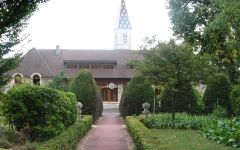Jean-Claude Boisset Beaune Les Greves Premier Cru 2013
-
Wine
Spectator -
Wine &
Spirits



Product Details
Your Rating
Somm Note
Winemaker Notes
Professional Ratings
-
Wine Spectator
Rich and smoky, featuring cherry, strawberry and spice flavors. Picks up a chalky, savory quality as the finish plays out. Best from 2017 through 2028.
-
Wine & Spirits
A small wine with graceful power in its tannins, this is focused more on earthy vegetal and mineral character than on any direct fruitiness. The flavors last, perfumed with spice. Pour it with something fatty, like duck rillettes.
Other Vintages
2018- Decanter
-
Wine
Spectator
-
Wine
Enthusiast -
Wine &
Spirits








Since 2002, Jean-Claude Boisset has been transformed by Mr. Boisset's son, Jean-Charles, from a traditional négociant into a viniculturaliste, a cross between a viticulturalist and a vinifier. The result is the Jean-Claude Boisset Collection of Wines - Burgundy through and through.
From one of the best young winemakers emerging in France, Grégory Patriat, each of the appellations is the result of rigorous selection and has been produced in limited quantities. This is the way of things in Burgundy... handcrafted in meticulous detail, according to a philosophy of "letting the vine do the work". A taste reveals our aim of striving for authentic wines in which human intervention has been kept to a bare, discreet minimum; the wines are concentrated, well-rounded, and–-of course--expressive of their terroirs.
